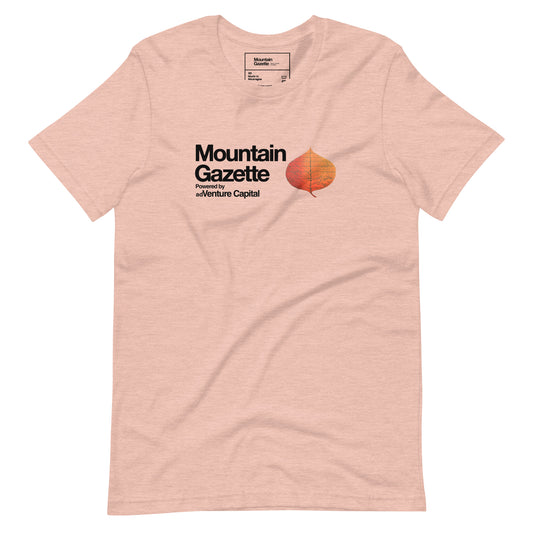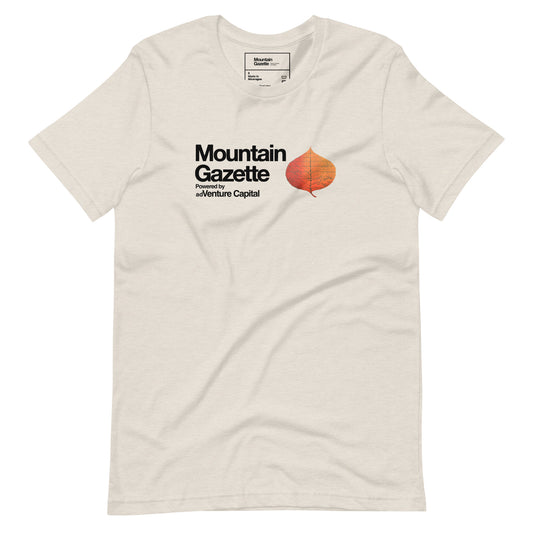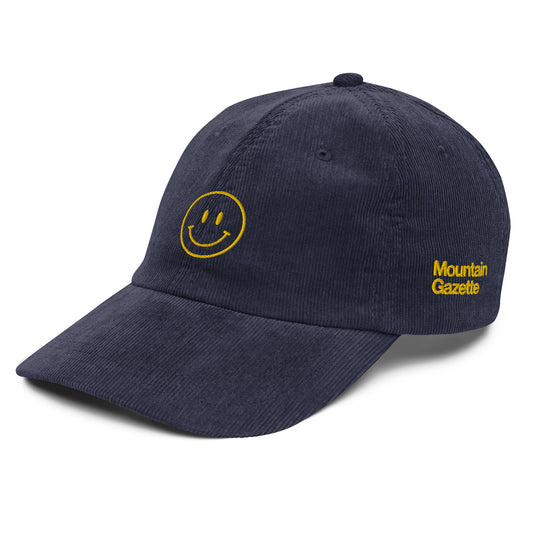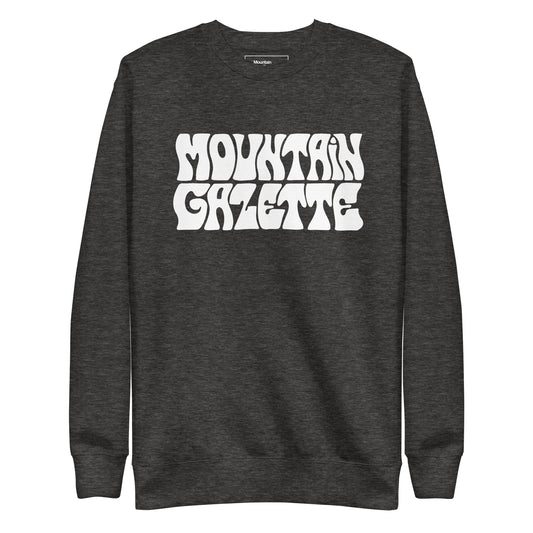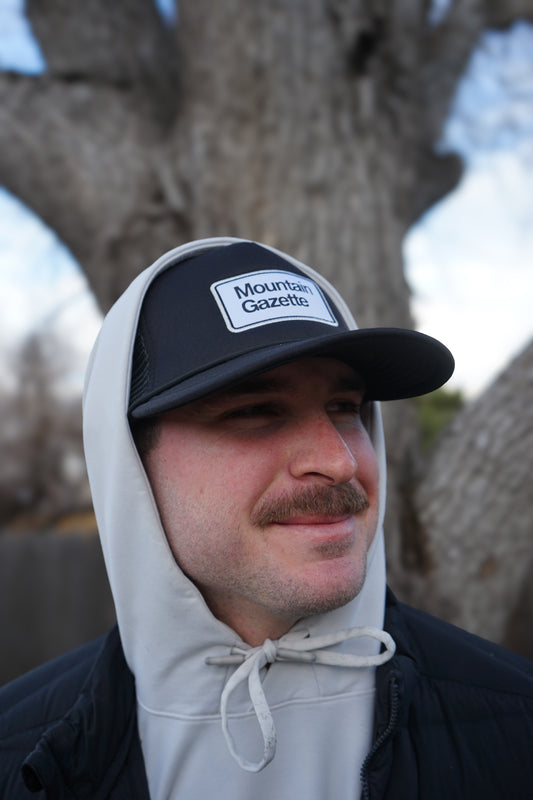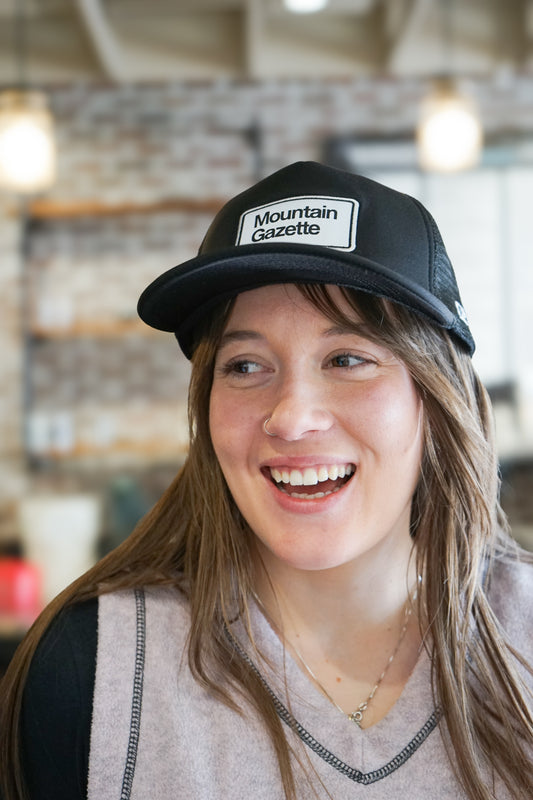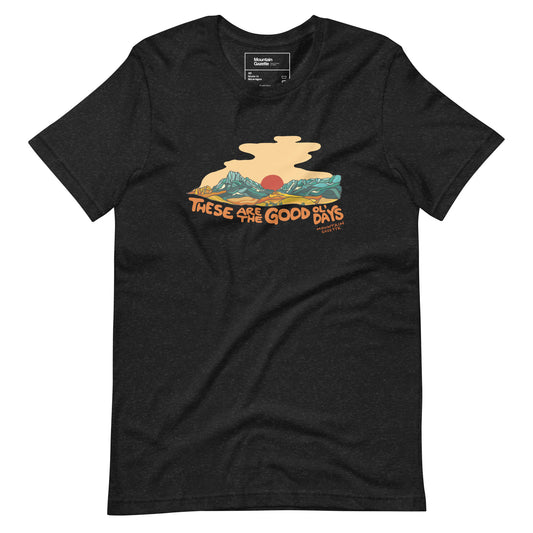Feature: Nobody Magazine
Stories about everything else
By Hannah Truby
This story originally in the Mountain Gazette Sunday email — our weekly newsletter. Subscribe to the newsletter here
Beat down by a monotonous churn of journalistic grind, two Californians found themselves at a burger pop-up bar in Berlin. That same night, they founded Nobody Magazine.
“We both came to Germany for different reasons; we didn’t know each other, but we were both writers,” co-founder Sami said. “We were a part of an online group of freelance journalists in the area, and we ended up meeting up in the summer of 2018.”
Writing stories they didn't want to while wishing to write those they did was one big thing Sami and Tessa found they had in common, each with feelings of frustration and discouragement in their respective careers.
Sami said the two shared “a sensibility of slower, more sensitive, nuanced stories that aren't necessarily going to be headline grabbers, or tagged to the latest thing going on in the culture turn. We had really started to feel like there was no space for those kinds of stories, and it was discouraging.”
“We also had a latent desire to start our own magazine, but never made it happen for different reasons,” Tessa added. “And had never found a partner to do it with. So, it was on that night that we said, ‘okay, let's let's do this!’”
“Stories about everything else” is Nobody’s tagline, and the magazine indeed holds space for refreshingly slower stories.
“It's sort of just the stories that, if you were to pitch it to an editor at a mainstream magazine, they would probably be like, ‘Okay, but why now, who cares? What's the hook?’ We say there doesn't have to be one.”
The essence of Nobody is, upon first glance, ominous: “Failure” and “Ghost” mark the themes for the first two issues. But the pages hold more than the names and ambiguous covers give off.
“The themes are usually really ripe areas to dig into the darkness a little bit. Which doesn't mean the second issue is full of ghost stories; we wanted people to explore that ephemeral idea of, ‘what is out there that you can't really hold on to?’ With “Failure”, it’s both something that is often misunderstood—forced into categories—and something that unites us. And in the issue you’ll find glimpses of life under the failures.”
Intrigued, I asked for an example.
“One that has really stuck with both Tess and me was from a writer in Canada. The story was about how she trained an AI-like algorithm to respond to her own words with a corresponding poem. She wanted to see if it would feel like her writing, to only tell her own truth.”
Read an excerpt of the story below:
An algorithm would know about desire. Every month I pay Apple something like $4.51 to hold onto useless artifacts for me: screenshots of texts; photos. Google charges $19.99 per year for the luxury of holding onto things. Addresses I ask an app for a ride to, late at night. The same address that becomes the starting point for directions back home in the morning. The ability to search my email for “dad” and receive messages from the dead.
You can give an algorithm anything to learn. So one day, I make my own. I feed it my writing and I train it—machine learning being a bit like a dog—to only tell me my own truth. If my algorithm can write like me, can it also feel like me? I ask it, or maybe me, to tell me how algorithms know of desire.
“It's really beautiful. And very special,” Sami said. “It's exactly that kind of story that not many places would be open to because it's pretty unusual – it’s genre-less. Working with those kinds of stories and creators is like exactly why we founded the magazine, and why we wanted to be fully independent.”
Within the independence, Sami and Tessa find both the boon and bane of the craft, a common thread seen throughout the independent publications we’ve featured.
“Nobody was and is very much a passion project,” Sami confirmed. “So, with that, the main challenge of course is the funding itself. And we are completely self-funded, and probably are likely to stay that way for the foreseeable future.”
Also like past publications, having a bit of unfounded confidence was the key to starting, and the thing that keeps it going.
“I think we both had lots of blind faith from the start, which served us really well,” Tessa said. “We had no idea what it was going to take, to cost, how long…but we were just so excited and energized by the actual act of producing, to be concerned about the minuscule little editorial decisions that we just had to make – it was all up to us.”
As Nobody is ad-free, the magazine’s revenue comes from their stockists from around the world. A major help in production cost? The magazine’s birthplace.
“I don't think Tess and I could have done this if we were still living in California,” Sami shared. “Printing costs are much lower, the cost of living is lower. And that meant that we could pull something off on a budget, while still making a magazine that didn't make us feel sick to our stomach.”
There are no staff writers at Nobody; submissions are the M.O., and heavily encouraged.
“Our first issue was pretty ad hoc, it was a lot of reaching out to people and asking them if they had projects that already existed in some form. But our second issue, we put out a pitch call and got a lot of really great pitches. People have some really amazing stuff to share.”
Sami and Tessa published issue number two this year, the third to be released sometime next year. The theme? “Burning”.
“We’ll kind of be treading on that dark side again, but with moments of light in it. It’ll certainly be something Californians can relate to,” Tessa explained. “I'd say be on the lookout for that. It's gonna be a good issue.”
Like lemonade from lemons, Sami and Tessa have found a way to take the content churn of journalism and recontextualize it into something with fervor and intention, something they are proud of – kind of the reason journalists, writers, artists, and all creatives begin in the first place.
“We’ve learned what actually makes us happy in our work through this magazine,” Sami said. “It’s helped us work with something that can feel really oppressive sometimes – the daily grind – and turn it into something really special.”
Nobody’s third issue, “Burning”, will be published in Summer 2024. Until then, you can subscribe here.




